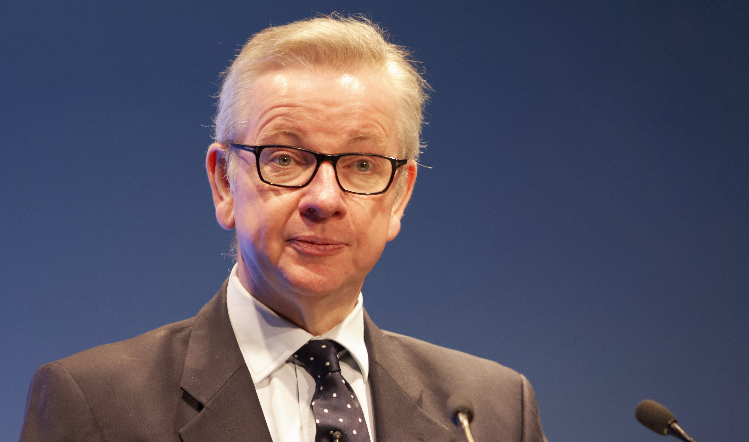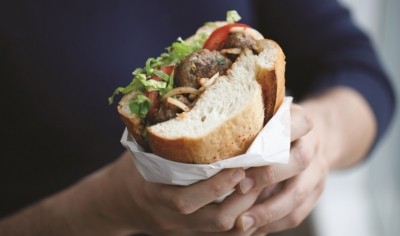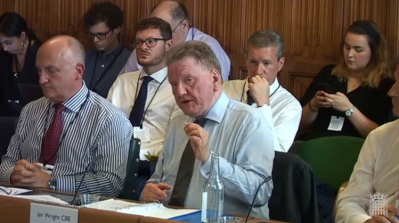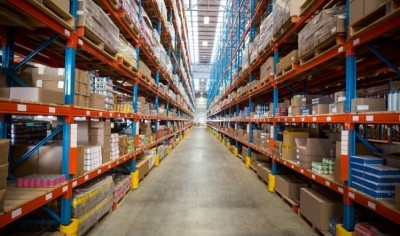‘Best possible’ Brexit deal needed: Gove

Whomever the next Prime Minister was, Gove believed it was “absolutely clear” that the Government should work to get the best possible arrangements with the EU.
Speaking at the Food and Drink Federation (FDF) Parliamentary Reception last week (10 July), Gove stated “emphatically” that the Government did not want a no-deal Brexit.
He said: “We’ve been meeting weekly, not just with representatives of the FDF, but with all the principal sectors … to make sure that if we do face a no-deal exit, that we are as well-prepared as we can be.
“But we also acknowledge in government that we emphatically do not want a no-deal exit. We absolutely want to secure a good deal, because that we know, in the event of a no-deal, tariffs, currency depreciation, additional regulation and other factors would put a strain on a highly successful industry.”
‘Absolutely catastrophic’
Also speaking at the event, Sue Hayman, shadow secretary of state for the Department for Environment, Food and Rural Affairs, said leaving without a deal would be “absolutely catastrophic” for the food and drink sector.
She added: “Labour will simply not countenance leaving the EU without a good deal in place. We also believe that whomever emerges as the next Prime Minister should put any deal to a public vote.
“I also include remain as an option – because against a no-deal scenario, or a disastrous deal that simply doesn’t deliver for industry, we believe that we would need to campaign for remain in order to protect jobs, to protect businesses and uphold our existing high standards.”
FDF president Gavin Darby told reception attendees that there “were serious consequences” of the worst-case outcome, which was a no-deal Brexit.
He said: “Perhaps one of the most disturbing results was from one of our recent member surveys, where nearly half [of respondents] said there would be employment reductions, there would be redundancies in the event of a no-deal Brexit.”
‘Great British success story’
Describing UK food and drink as a “great British success story”, Gove also used the reception to talk about the planned National Food Strategy for England, announced by the Government last month.
“I know some people will say ‘I thought you were a Tory? You’re having a National Strategy for food? What next? Is this some sort of Stalinist takeover of a Conservative Government?’
“Not at all. It is the private sector and the market that performs a million daily miracles, and … in making sure we have high-quality safe and nutritious food on our plates in a way that is affordable to so many people in this country.
But it was also the case that government recognised it sometimes had to intervene, Gove added.
“The recent tragic death of Natasha Ednan-Laperouse reminded us that there is growing concern, and indeed growing evidence, of the need to ensure that food is labelled more effectively and those who live with allergies are protected better. And that is only one example of the way the Government intervenes.”
National Food Strategy review
The National Food Strategy review will be headed by Henry Dimbleby, co-author of the Government's childhood obesity plan and co-founder of the Leon restaurant chain, who jointly launched it with Gove. Defra said the National Food Strategy would build on the work underway in the Agriculture Bill, the Environment Bill, the Fisheries Bill, the Industrial Strategy and the childhood obesity plan. The scope of the review will be England, but the strategy will consider relationships with the devolved administrations, the EU and other trading partners.
The strategy will cover the entire food chain, from field to fork: the production, marketing, processing, sale and purchase of food (for consumption in the home and out of it), and the consumer practices, resources and institutions involved in these processes.
It is intended to be an overarching strategy for government, designed to ensure that the food system:
- delivers safe, healthy, affordable food, regardless of where people live or how much they earn
- is robust in the face of future shocks
- restores and enhances the natural environment for the next generation in this country
- is built upon a resilient, sustainable and humane agriculture sector
- is a thriving contributor to our urban and rural economies, delivering well-paid jobs and supporting innovative producers and manufacturers across the country
- delivers all this in an efficient and cost-effective way.















